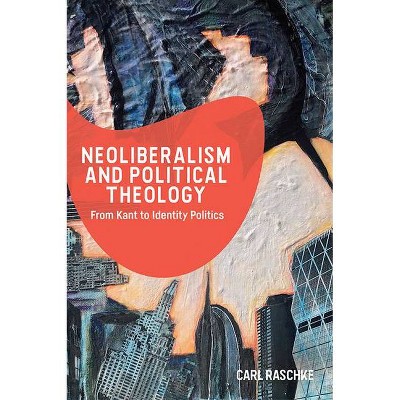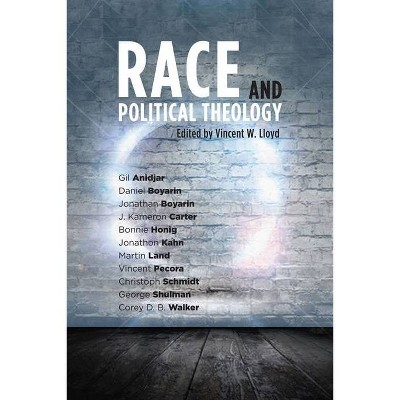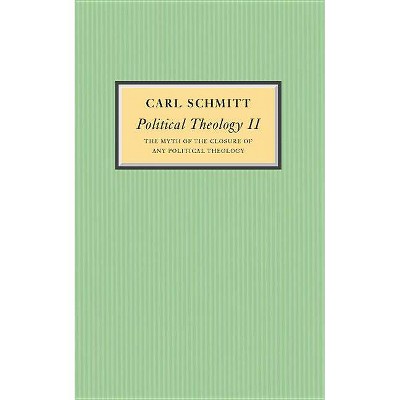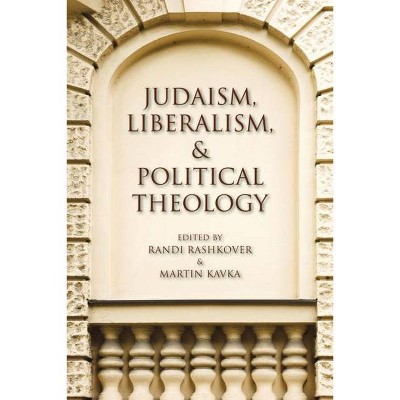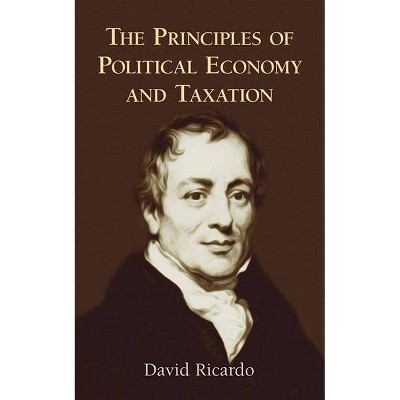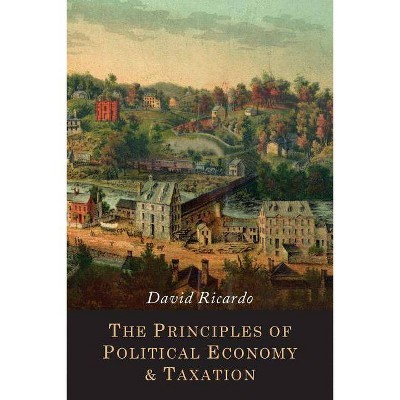Trump and Political Theology - by Jack David Eller (Paperback)
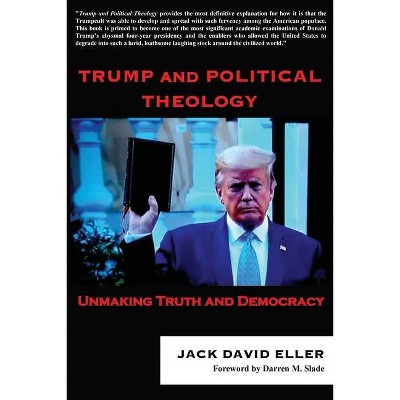
Similar Products
Products of same category from the store
AllProduct info
<p/><br></br><p><b> Book Synopsis </b></p></br></br><p>For millennia, a fundamental question of culture and law has been the relationship between religion and ruler, or more recently between church and state. Although the term "political theology" was not always known, the question remained and was answered in various ways: theocracy, the divine right of kings, the mandate of heaven, the rule of jurists, and so forth. Almost a century ago, Carl Schmitt revived political theology and reshaped it into a less theological and more political subject with his famous notions of sovereignty and the exception. Schmitt highlighted the eternal struggle between power or authority on the one hand and positive law and political institutions on the other, arguing that law can never entirely legitimize or constrain power or authority and that the real site and source of law is the moment of exception and of "the decision."</p><p><br></p><p><em>Trump and Political Theology</em> applies this Schmittian lens to Donald Trump, an exceptional president who seems to use his executive and decision-making power to flaunt law and truth, to cripple and discredit institutions, and to bend reality to his will. The book considers first whether Trump is an aspiring Schmittian sovereign and therefore a threat to democracy. But it goes beyond Trump and Trumpism to critique and rethink political theology in the light of contemporary, especially populist and authoritarian, politics. Finally, it compels us to critique and rethink theology itself as a tool for understanding and organizing politics and society, restoring the relevance of myth and ritual and of pre-Christian and non-Christian characters like the shaman and the trickster for modern politics and social theory. </p><p/><br></br><p><b> Review Quotes </b></p></br></br><br><p>"OMG. Wow. Here is an analysis of the Donald Trump phenomenon that goes deeper and wider than anything I've read. A must read no matter who the next president is because David Eller's discussion of "political theology" reveals so much about the craziness and ironic coherence of American politics."</p><p>-Mark Galli, </p><p>Former Editor-in-Chief of <em>Christianity Today</em></p><p><br></p><p>"In the void left by the death of God, Eller explores how the violence of language and the power of mediatic charisma can create a new politics of myth, ritual, and emotion: from this abyss Trump emerges as a figure of exception that reveals the contradictions of liberal democracies. This is a fundamental book to understand our age."</p><p>-Dr. Antonio Cerella, Kingston University, London, </p><p>Author of <em>Genealogies of Political Modernity </em> </p><p><br></p><p>"Eller highlights the inescapable significance of political theology to late modern discourse. His work combines a rich historical survey with a penetrating analysis of religious thought in twenty-first-century America."</p><p>-Dr. Benjamin T. Lynerd, Christopher Newport University, </p><p>Assistant Professor in the Department of Political Science</p><p><br></p><p>"The Christian Bible knows naught of presidents and even less of republics and democracies; and neither republicans nor Republicans can be found within its pages. The thirteenth chapter of Paul's Epistle to the Romans commands us to be "subject unto the higher powers. For there is no power but of God: the powers that be are ordained of God. Whosoever therefore resisteth the power, resisteth the ordinance of God; and they that resist shall receive to themselves damnation." To understand how this relates to the apotheosis of Donald J. Trump, one needs to understand American political and religious history; the dynamics of conspiracy theories; the authoritarian character; True Believers; the identity and nature of Trump's supporters; as well as the importance of mendacity, disinformation, demagoguery, secrecy, and much, much more. </p><p><br></p><p>"Not only does Professor Eller supply such information as is needed to understand the Trump phenomenon, he provides an extremely enlightening discussion of "Agnotology and Agnomancy: Studying Ignorance and Conjuring Ignorance." Eller's discussion has reinforced my view that <em>Ignorance-</em>not <em>Compound Interest</em> as Albert Einstein is alleged to have quipped-is the strongest force in the universe. Because of this book, I expect that the name Jack David Eller will become the latest addition to the series Gustave Le Bon, Émile Durkheim, Erich Fromm, Eric Hoffer, and Hannah Arendt."</p><p>-Frank R. Zindler, American Atheist Press</p><br>
Price History
Price Archive shows prices from various stores, lets you see history and find the cheapest. There is no actual sale on the website. For all support, inquiry and suggestion messages communication@pricearchive.us
